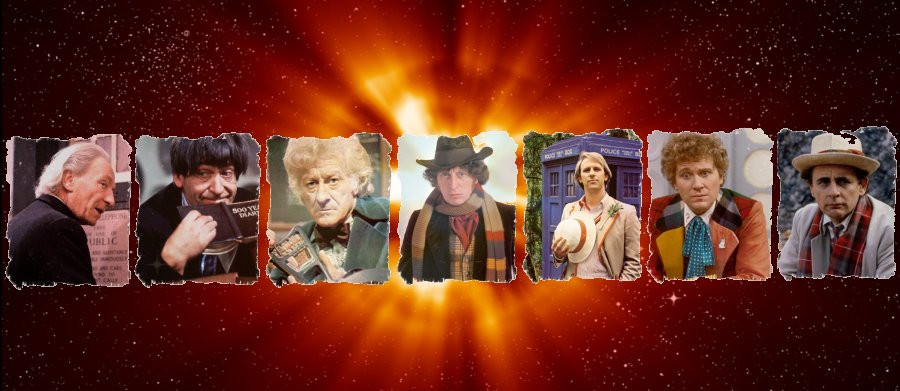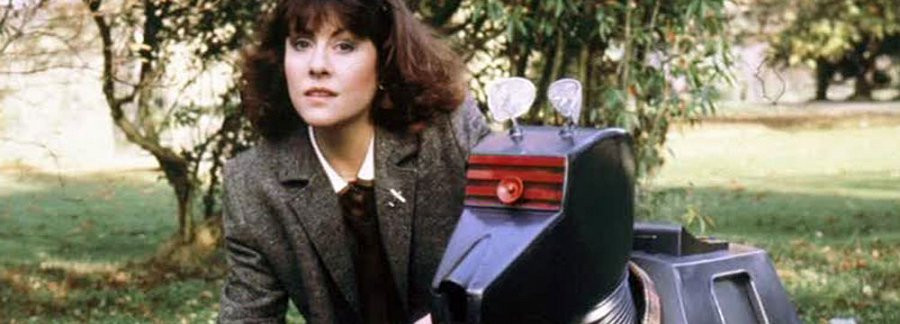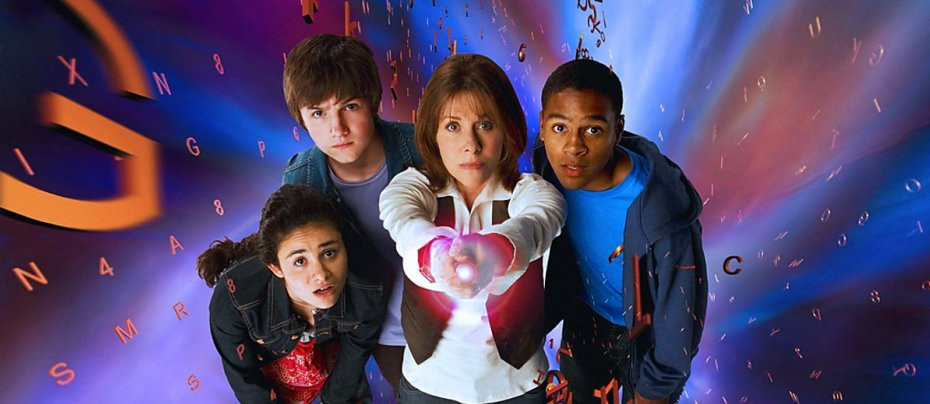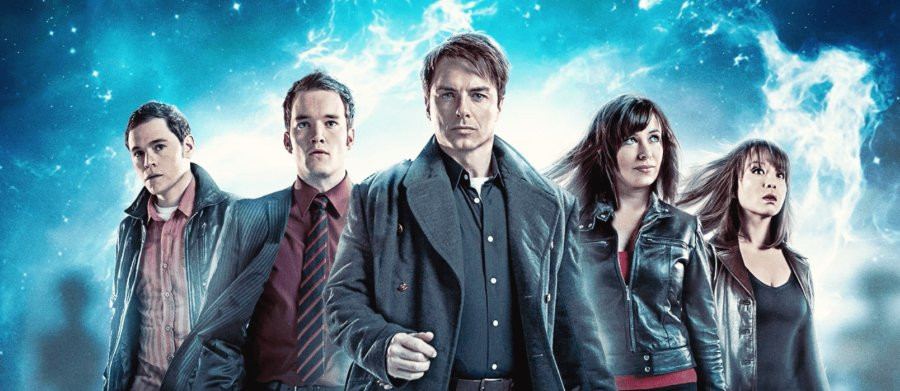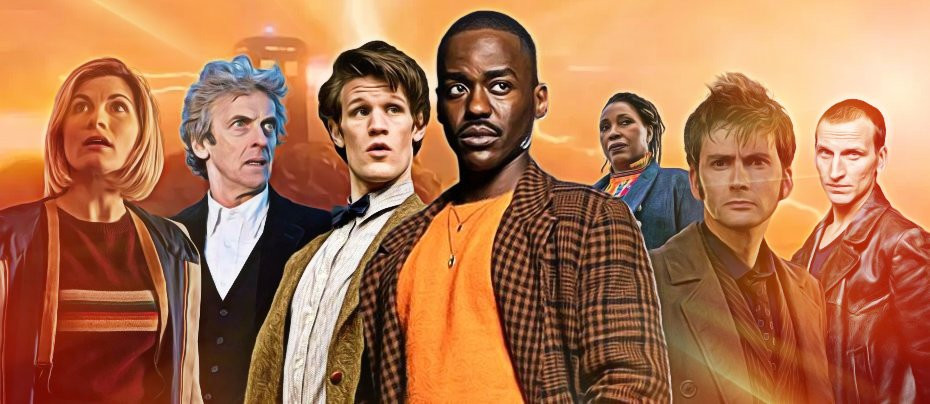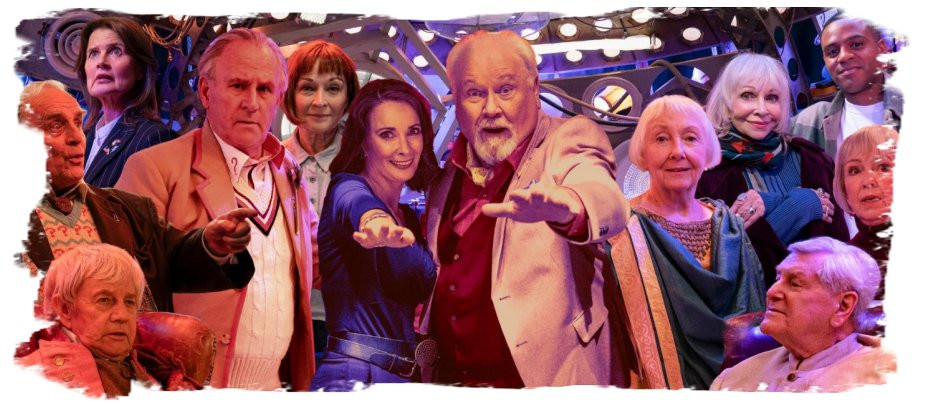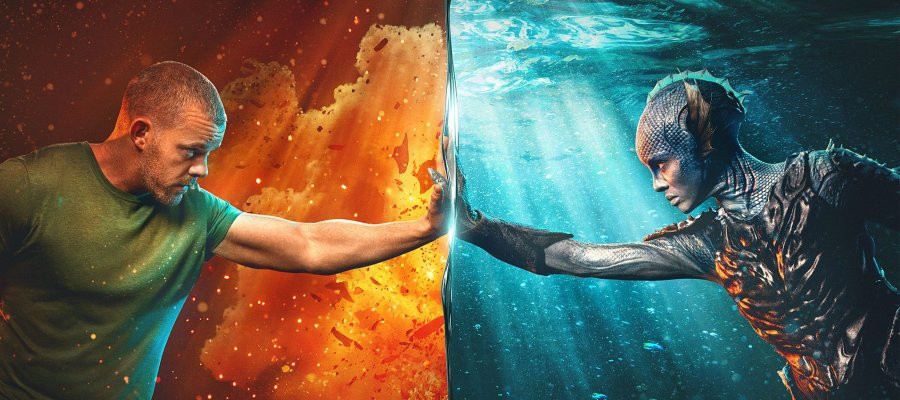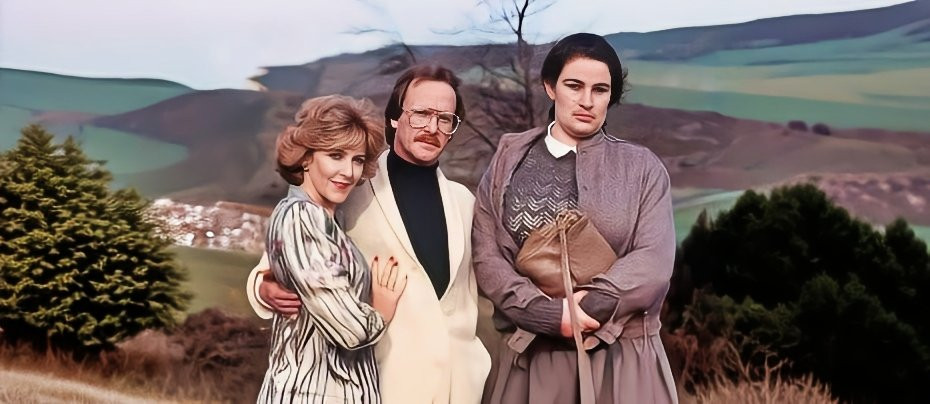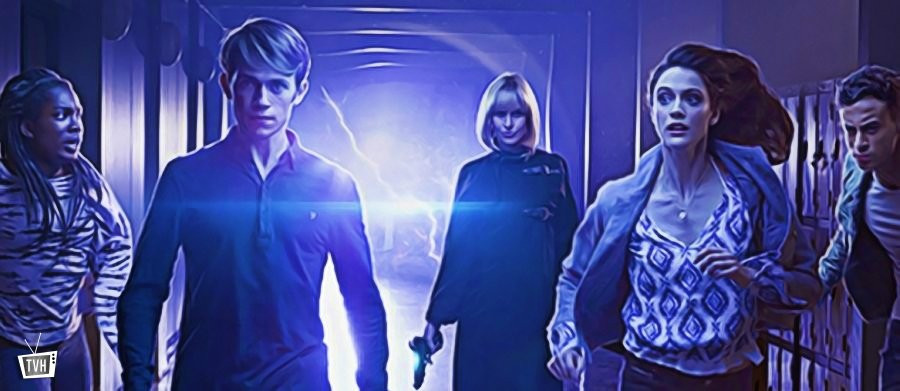State of Decay
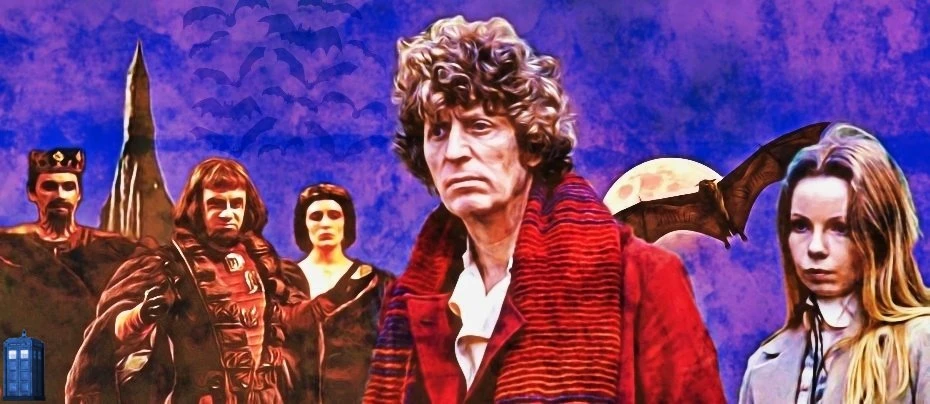
Doctor Who has dealt with all manner of legendary and mythical beings over the years, from the Loch Ness Monster to the Devil himself. One that the series has tackled more than once is that perennial Hallowe'en favourite, the vampire. Aside from a trip to a house of horrors for William Hartnell (“Journey Into Terror,” 1965), the first appearance of vampires in the series wasn't until the eighteenth season, Tom Baker's last. State of Decay was the middle serial of the season and of a loose trilogy of stories that saw the TARDIS lost in a parallel universe called E-Space. Not that anything would have prevented this story from taking place in our universe, but it does add a little something to the story.
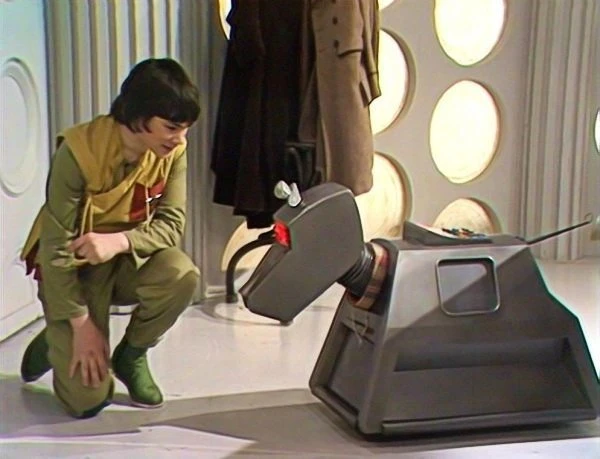
Trying to find their way out of this bijou little cosmos, the Doctor (Tom Baker) and Romana (Lalla Ward) are accompanied by the robot dog K-9 (voiced by John Leeson). Unbeknownst to them, they also have a stowaway: Adric, played by Matthew Waterhouse, who debuted as an inhabitant of the planet Alzarius in the previous story, Full Circle. Envisioned as a sort of Artful Dodger figure, if the Artful Dodger had been an insufferable maths nerd, Adric was the first step in the series' movement to a younger regular cast. Carrying these four, the TARDIS materialises on one of the few habitable planets of E-Space. On this world, there is only one village and a huge tower from which the Three Who Rule lord it over the peasants. They have suppressed all scientific knowledge and periodically select a young person from the village to be taken as an offering.
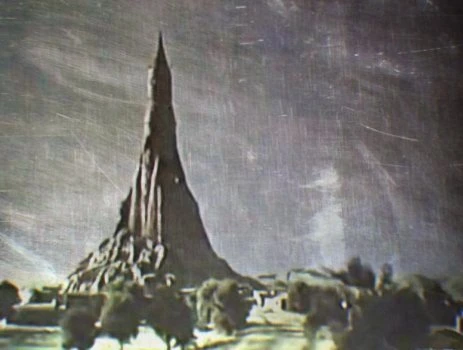
It's straight out of the Hammer Horror playbook. However, this is the 1980s – after Hammer's dominance of British horror cinema. Hammer Films had gone into liquidation in 1979 (naturally, it's been resurrected, and their TV line survived for a while), and while its influence was still felt, it's no surprise that State of Decay actually originated in 1977. Submitted by veteran Who writer Terrance Dicks, “The Witch Lords,” later on “The Vampire Mutations,” was intended for the fifteenth season, but was quashed because the BBC was in the process of making a high-profile adaptation of Dracula. “The Vampire Mutations” was replaced with the very good Horror of Fang Rock, while the BBC's Count Dracula, starring Louis Jourdan as the eponymous count, did quite well but is widely regarded as being among the last gasp of the BBC's mastery of period drama.
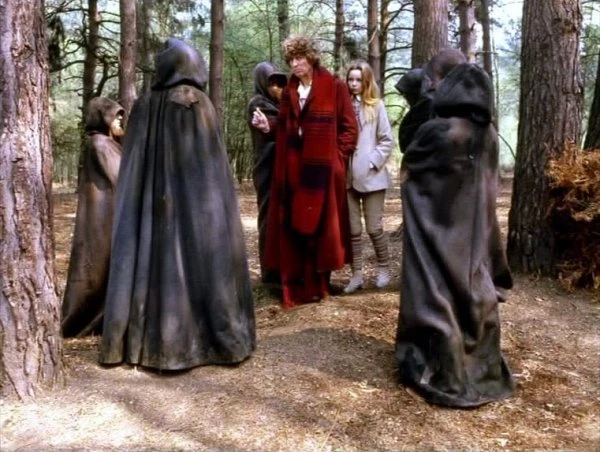
The script was dusted off for season eighteen and reworked to fit the E-Space concept and the new companions. By 1980 though, neither Hammer nor the BBC were really making things like this. Doctor Who had moved out of the gothic horror phase that had characterised Tom Baker's most popular period. State of Decay is then, an outlier, a weird cross between the sci-fi heavy eighties’ renaissance of the series and the old gothic Hammer riffing era. Weird video effects and superimposed images combine with stock footage of swarms of bats and lots of running around in dimly lit catacombs. The Three Who Rule are so made-up they look like they've stepped out of a New Romantics music video, and the music is a bizarre synthesiser take on recognisably gothic cinema scores.
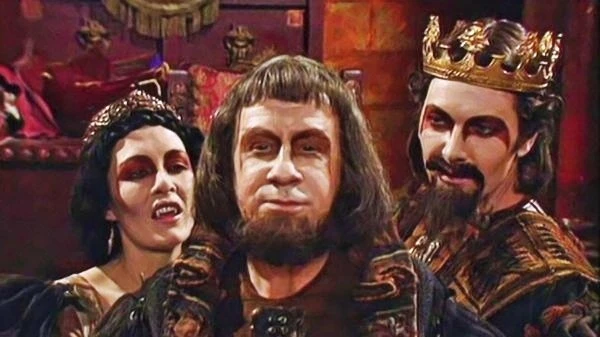
By this stage, Doctor Who had done so many sci-fi explanations for classic monsters that it would have been a shock if the vampires had turned out to be merely supernatural. Cleverly, though, the script has its cake and eats it. The initial assumption of the Doctor, and the sci-fi savvy viewer, is that the Three Who Rule are the descendants of a crashed spacecraft, their names having drifted down the generations (Sharkey, MacMillan and O'Conner becoming the more appropriately spooky Zargo, Camill and Aukon). The reveal then, that they're not the bridge crew's descendants but the original crew themselves, is a great one, combining the classic “crashed spaceship crew develops into a primitive society” with “vampire overlord grants his acolytes immortality.” The attributes of the Three Who Rule are classic, old school vampire material, with fangs, opulent costumes and all that, looking for nubile young things to eat or turn and crumbling to dust when they're finally done in.
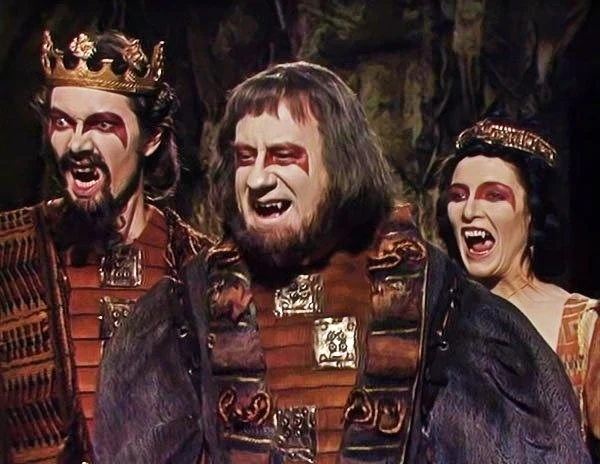
Dicks sets up a deeper mythology, though, with the Doctor recalling disturbing folk stories from his own childhood and revealing that he knows of vampire stories on countless worlds. Searching through the TARDIS archives, wonderfully kept on punch cards and magnetic tape, he discovers that in the ancient past, a race of giant vampires appeared from an unknown universe, draining whole worlds of life and spreading their infection to others. The Time Lords fought a great war against them, fighting them with “bow ships” that pierced their hearts, until the final survivor, the Great Vampire, disappeared. This creature now sleeps below the surface of the planet, having granted the Three Who Rule their powers in return for sacrifices.
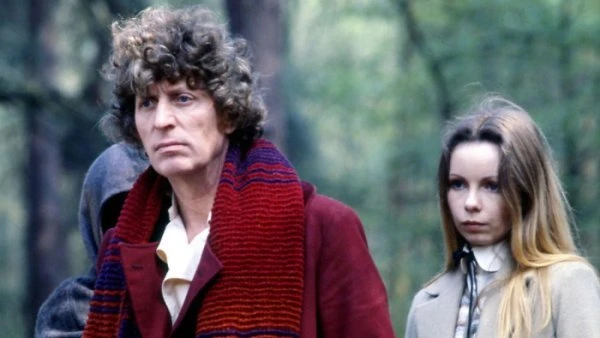
It's a wonderfully macabre storyline, and suits Baker's increasingly sombre Doctor perfectly. He's never anything other than watchable, even when there's a lot of trouble behind the scenes, as there was here. He and Lalla Ward were having a tumultuous time in their relationship and were kept apart when not filming to prevent argument, while Baker himself was suffering with an illness that affected him so badly his hair straightened and had to be permed. Yet, during their scenes together, there's a wonderfully flirtatious frisson between the Doctor and Romana. Lalla Ward is in her element as the posh Time Lady plays along with the vampire lords – and she should be comfortable in these surroundings, having appeared in Hammer's Vampire Circus in 1972.
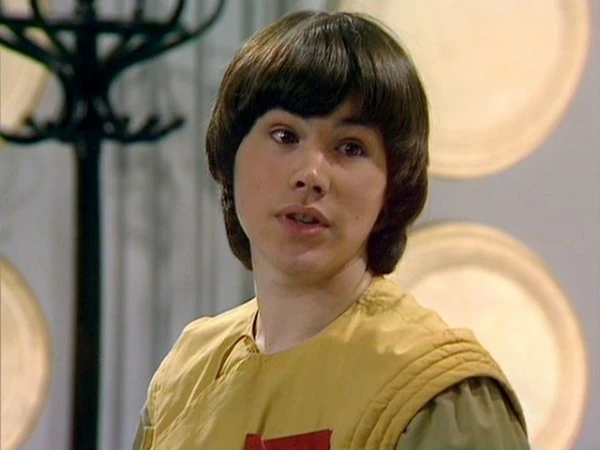
Less impressive is Matthew Waterhouse as Adric. It's become fashionable to knock the young Waterhouse, only eighteen but looking younger, and in fairness, he is fairly dreadful in his first filmed outing as the companion. Still, I do have a soft spot for the young chap, hailing from my own hometown of Haywards Heath, filming only his second-ever professional production (after To Serve Them All) and thrown into the mix with a fighting leading couple. It doesn't help though that Adric is so obnoxious, although at least it's believable when he seems to side with the vampires against the Time Lords to save himself.
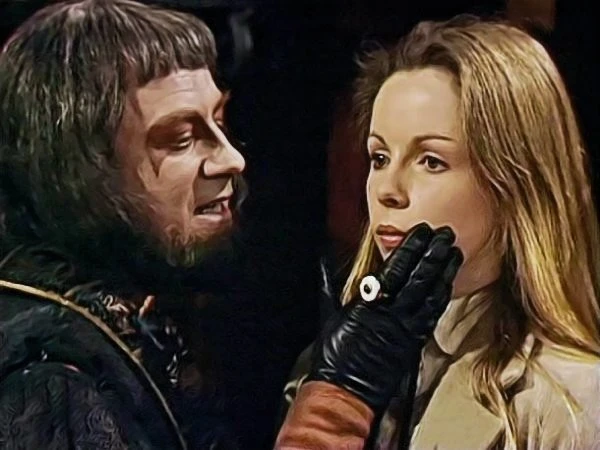
Among the Three Who Rule, Emrys James (Testament of Youth, The Man in the Iron Mask) is best, as the nominal leader Aukon. He's a studied theatrical actor and you can tell, making the most of his portentous material and embracing every chance to chew the scenery. Rachel Davies (Band of Gold, Emmerdale) and William Lindsay (Colditz, Blake's 7) aren't as good, but they're given flimsier material to work with. Among the villagers, none really stand out except for Anthony Hewlett (Moondial, The Black Adder) as the elderly wise man Kalmar. He runs a secret lab in a cave, full of wonderfully archaic scientific equipment handed down the ages, including a charmingly old school BBC computer. If you look at the screen once the Doctor manages to get it working, you can just make out that the spaceship's logs are dated to 1992!
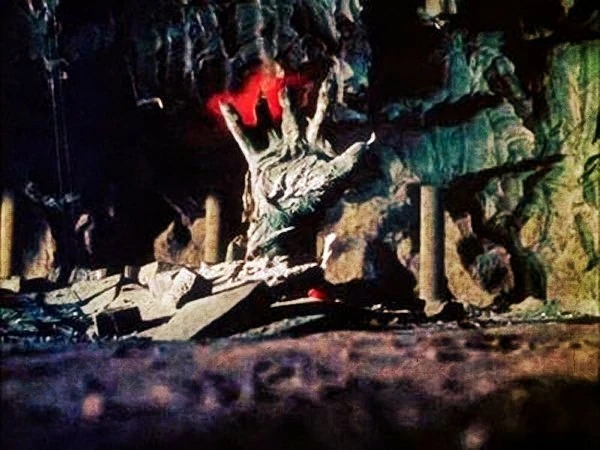
The ending is perhaps a bit predictable: there's a huge, pointed tower that's really the downed spaceship, just the right size for staking a giant vampire through the heart. The Great Vampire is woefully unimpressive when we see its batlike form on a monitor, but there's something arresting about the gigantic, green-tinged hand that reaches out of the ground as it begins to wake. It's clearly the point where the budget ran out though. There are a number of flaws in the script as well, relics of the many rewrites it went through over the years. The Three Who Rule are tolerated because they apparently protect the villagers from “the Wasting,” something which is never even vaguely elaborated on. Even the title is a bit of an oddity, in keeping with the season's running theme of entropy but forced into dialogue to describe the backward development of the society. K-9's role as a leader of the offensive against the tower is laughable, although at least the script acknowledges this. It's hard to quibble too much about any of that when you've got Tom Baker as the Doctor fighting vampires to get to the big king space vampire. It's a delightfully atmospheric bit of old hokum.
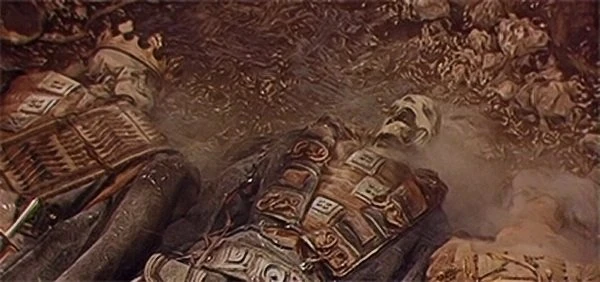
State of Decay's contribution to Doctor Who's larger mythology was massive. The spin-off novel series The New Adventures in the nineties, obsessed as they were with the ancient history of the Time Lords, revisited the concept of the Great Vampire race and their offspring, which carried over into the early BBC Books Doctor Who novels and their own loose spin-off, Faction Paradox. On television, though, the story made next to no impact, and the next time the Doctor faced vampires, they would have an entirely different origin.
Review: Daniel Tessier


